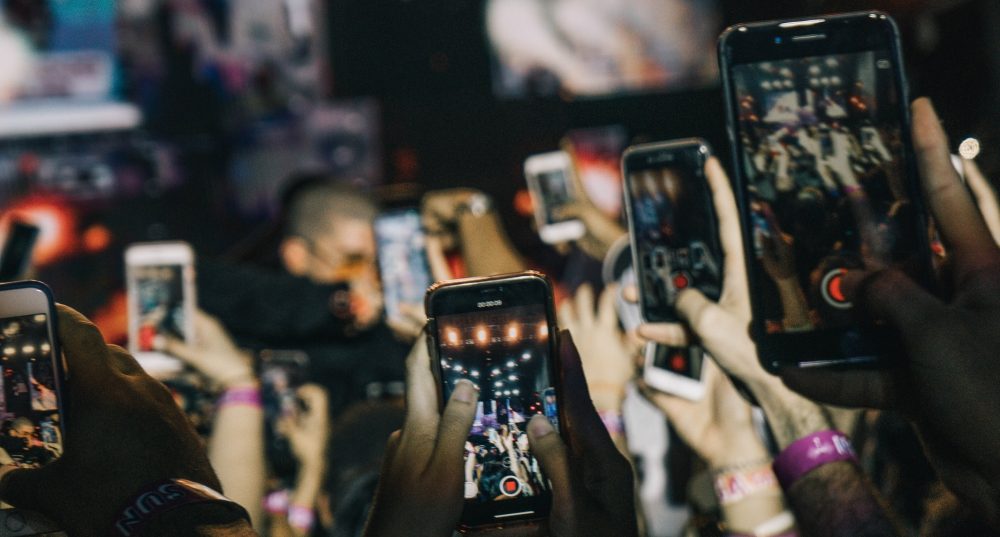 Giles Dawney is a writer and GP in Leominster, Herefordshire. UK, His web page is www.gilesdawnay.com
Giles Dawney is a writer and GP in Leominster, Herefordshire. UK, His web page is www.gilesdawnay.com
It’s not so hard to imagine. You are asked to see a child who has been assaulted at the school gates. The provocation? Posting his new hair cut on social media then having an argument with an online troll (attending the same school) who accuses him of being ‘gay.’ The troll then waits for him the next morning and punches him in the face. Thankfully he has sustained only soft tissue injuries.*
The age of digital ‘Diabetes’ is clearly here, but what are we going to do about it?
The line between our virtual and physical lives seems ever more porous. Smartphone technology, internet availability and speed means we now have access 24 hours a day. Most jobs now involve a screen and being online. “What does this new reality do our minds and brains?” is a question yet to have enough evidence to answer. However it is fast becoming clear that we are no happier or healthier for it.
Finally it seems there are noises from governmental on high wanting to ban smartphones for under 16s1 which would make them an equivalent political health risk to smoking. In a disturbing modern parallel, where once it was common for people to spark a cigarette when they had 5 minutes of not knowing what to do, now it seems that has been replaced by an almost reflex reach for our phones to see if there is anything new to be aware. But in the same way the dangers of smoking were known about long before they were acted upon, it is likely that the big tech producers will not give up a huge section of their market without a fight. Capitalism will promise the individual great rewards but loves to blame them for their choices and behavior in equal measure. It is never the corporation’s fault, they only make the product. For example, petrol giant BP popularised the phrase ‘Carbon Footprint’ in 2005 to place responsibility squarely at the door of the individual consumer.
Social Media is now an ever present reality in our daily habits. It is where we can broadcast our daily lives and where we can receive the vast majority of our understanding of the world from. Undoubtedly it can be a force for good as it allows information sharing beyond the control of government message. Yet it also has a darker side: The Cambridge Analytica scandal highlighted this with its capacity for targeted election interference.2 What we read and how we inform our world view is increasingly suggested and given to us by powerful algorithms that don’t necessarily have our best interests at heart.
Not only this, but by interacting with social media we are giving away an endless amount of personal data about ourselves that can be sold on to companies to individually target us. Not to mention the risks to personal security. It is estimated that given 15 pieces of de-identified data, almost 99.98% of people can be identified.3
Johann Hari in his insightful book Stolen Focus, reveals the horrifying social media approach of ‘Enrage to engage.’ It is understood amongst those in the ‘Tech’ world that emotional content is what keeps our eyes on the screen the most. The longer our eyes are on the screen, the more likely we are to see the adverts chosen for us. The content is cynically designed by some of the smartest minds in the business to provoke a strong reaction in us as that is more likely to make us engage with it. Hari claims that YouTube’s algorithm is specifically designed to recommend a slightly more extreme and controversial video after the one you have just seen.4 Is it any wonder that our attention spans are reducing if social media dominates how spare time is spent?
What we read and how we inform our world view is increasingly suggested and given to us by powerful algorithms that don’t necessarily have our best interests at heart.
Facebook (who also own Instagram) has recently been outed as being actively aware of the negative body-image that they cultivate.5 In 2017 the American Psychological Association found that 78% of teenager were checking their phones hourly,6 and in 2016 LSE found that 51% of infants aged 6-11 months were using a touch screen daily in a study of 700 participants.7
With this in mind, is it any wonder we find modern society increasingly polarized, fractured and argumentative? Especially when the content that we feed ourselves with to understand the world is actively trying to unbalance and upset us. The increase in mental health issues, particularly in younger people, is massively on the rise. This is a group of people for whom there was no life before internet. Is this really a coincidence?
The etymology of the word Diabetes comes from the Greek work ‘to syphon.’ Its use in modern medicine alluding to the bodies inability to syphon off the sugar appropriately.
The digital world is here to stay but how much screen time is healthy? As Toxicologists love to point out, it is the dose that makes the poison. As in so many areas, the body’s capacity to endure, recover, regenerate and repair can only happen under so much stress and poor health choices. Like the pancreas when faced with a daily onslaught of acidic glucose in the bloodstream, it eventually will burn out.
It seems clear that the age of Digital Diabetes is now here, but what are we going to do about it?
Deputy editor’s note: *This is a hypothetical scenario based on the authors experiences and not a reference to any individual patient. See also: Richard Armitage’s review of The anxious generation here https://bjgplife.com/the-anxious-generation-how-the-great-rewiring-of-childhood-is-causing-an-epidemic-of-mental-illness/ see also Daniel James’ Are social media companies the new big tobacco? https://bjgplife.com/are-social-media-companies-the-new-big-tobacco/
References
- Smartphone ban for kids is worth considering – MPs – BBC News [accessed 19/6/23]
- Fresh Cambridge Analytica leak ‘shows global manipulation is out of control’ | Cambridge Analytica | The Guardian [accessed 19/6/23]
- Estimating the success of re-identifications in incomplete datasets using generative models | Nature Communications [accessed 19/6/23]
- J Haidt. The Anxious Generation. Allen Lane, 2024, ISBN-13: 978-0241647660, £25.00
- Facebook aware of Instagram’s harmful effect on teenage girls, leak reveals | Instagram | The Guardian [accessed 19/6/23]
- American Psychological Association (2017). APA’s Survey http://www.commercialfreechildhood.org/sites/default/files/devel-generate/gaw/FBMessengerKids.pdf [accessed 19/6/23]
- http://blogs.lse.ac.uk/parenting4digitalfuture/2016/12/28/what-are-the-effects-of-touchscreens-on-toddler-development/ [accessed 19/6/23]
Featured photo by Gian Cescon on Unsplash






